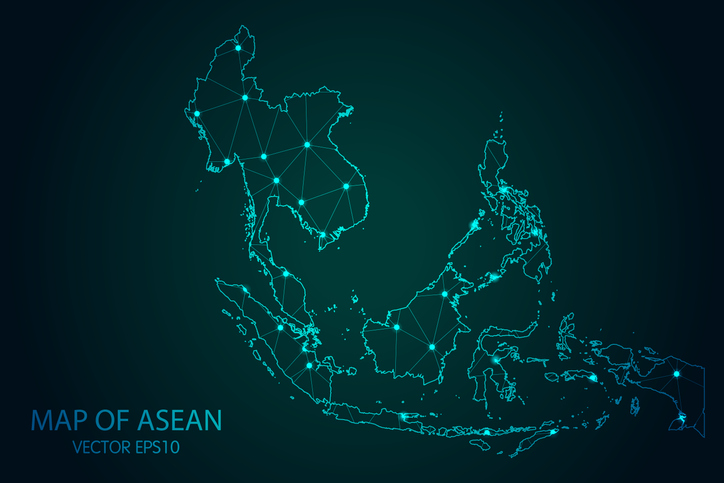Australia and ASEAN - A partnership for peace?
March 1, 2024
Australias relationship with the Association of South East Asian Nations (ASEAN) is now 50 years strong. On 4 March Prime Minister Albanese will welcome the 10 member nations to Melbourne for a Special Summit to celebrate our role as the first dialogue partner of ASEAN. The theme of the Summit is A Partnership for the Future.
The Prime Minister has often expressed his view that our economic future lies with South East Asia. It surely does. Economics and business opportunities will be discussed at the Summit. As will climate change and clean energy, education and maritime cooperation. All are worthy subjects and important bridges to regional cooperation across a diverse range of economic and political systems. Although not formally on the agenda, regional stability, a cornerstone of the ASEAN raison detre, will be discussed in every out-of-session meeting across the 3-day conference.
Delegates will have noted our Foreign Minister Penny Wongs statement at the 2023 ASEAN Indo-Pacific Forum in Jakarta. She said:
The Albanese Government is deploying all elements of our national power to make Australia stronger and more influential in the world, including by deepening our engagement in the region.
More recently, the Foreign Minister made pointed reference to the historical race for dominance that leads to war. She emphasised that the most serious scenario we must confront is the risk of strategic competition (between the United States and China) escalating into conflict.
She is right to bell that cat. That is why the grand occasion of the ASEAN Summit in Melbourne presents a unique opportunity for Australia. We should use it to break free from our image in Asia as the deputy sheriff of the United States supporting every US move to contain and confront China. That image is not entirely valid, but it has travelled with us for years and needs to be eclipsed.
Regional peace and our national security demand a domestic change of mindset and outlook. We urgently need to engage with our neighbours to embrace a policy of security with our region. It defies logic and good sense that Australian foreign and defence policy, in lockstep with America, openly contradicts our heavily dependent economic and trade relationship with China.
The 2023 State of Southeast Asia Survey Report, published by the ASEAN Study Centre, reported that 83.6% (of 1308 regional leaders) believed ASEAN is too slow and ineffective in coping with fluid political and economic developments. 73% also thought that ASEAN is becoming an arena of major power competition and worry its member states risk becoming major power proxies. No ASEAN nation, regardless of political credo, is keen to see tensions escalate between the superpowers. And all want to see Australia view Asia from Asia.
Its time for Australia to engage our ASEAN partners in a serious discussion about the road less commonly travelled; by embracing the power of regional diplomacy and cooperative engagement. In January, former Foreign Ministers Bob Carr and Gareth Evans, together with 50 eminent Australians, released the Dtente Statement. That document called for Australia to work for a strategic balance of power between the United States and China - an equilibrium designed to avert the horror of war and secure a lasting peace for our region. The proposal encourages the superpowers to embrace dtente through the auspices of a regional collaboration dialogue. Ultimately the policy is for the superpowers themselves to instigate.
For our part, its time Australia cast aside its international image of strategic insignificance and support ASEAN to overcome its own reputation as a slow and ineffectual group.
Heres how Australia can kick-start the process within ASEAN:
- Commend the Dtente Statement to ASEAN nations for consideration as a serious proposition backed by informed Australians - to be discussed in important ASEAN forums (such as the ASEAN Regional Forum Security Policy Conference and the Regional Forum Defence Officials Dialogue) - before being referred to the October ASEAN Summit in Vientiane.
- Encourage ASEAN to use its formal dialogue with China, at their regular meeting, to consider dtente as a way forward in diplomatic exchanges with the United States.
- ASEAN member Ministers and Australian Foreign Minister Penny Wong to raise the dtente proposition in bilateral foreign affairs ministerial meetings with Japan, South Korea, India, Timor-Leste and PNG.
- ASEAN to note that the 2024 US election year presents the Asia-Pacific region with the real possibility of changes in geo-political defence and strategic alignments. Regardless, that the US led security architecture should be complemented by a regional approach to self-defence capabilities and security.
- ASEAN and Australia together to play a constructive role in helping the US to better navigate the regions many multilateral institutions to advance US interests and influence instead of organising engagement solely around US military partnerships.
- Australia to consult ASEAN partners in a regional dialogue on the implications of the proposed deployment of AUKUS nuclear-powered submarines in South East Asian waters. This is consistent with the ALP Platform seeking deeper cooperation with ASEAN and its members in support of a strategic equilibrium in the region.
We know the ASEAN nations will discuss regional security issues tte–tte at the upcoming Summit. Let our senior officials join them and initiate some open dialogue to begin the process of reimagining the relationship we have together. We need to broaden our engagement with our region, seek to encourage consensus on our collective interests and take diplomatic action to tackle divisive issues with a collaborative mindset.
Above all, we need to shape a regional identity that enables us to live in peace and harmony with the big kids on the block.
